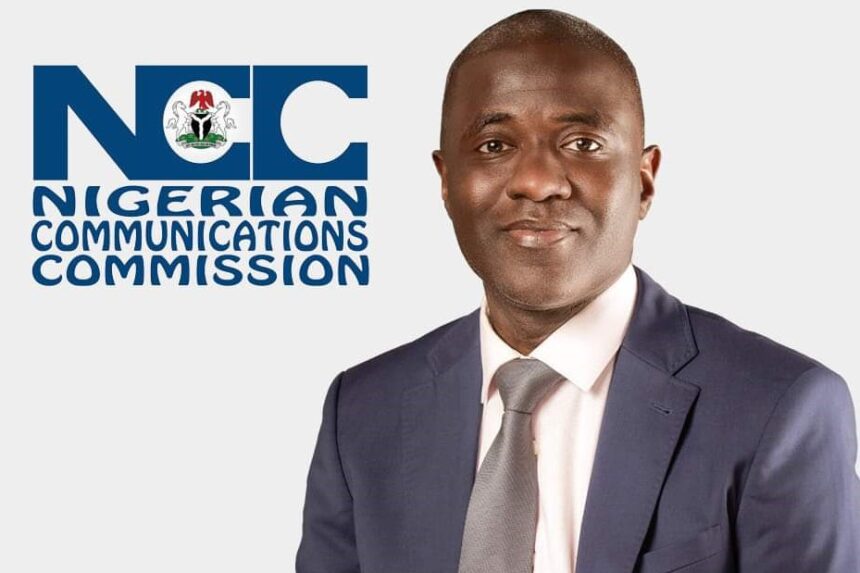Admin I Tuesday, May 21, 2024
WUSE, Abuja, Nigeria – The Nigerian Communications Commission, NCC has held a public inquiry on three regulatory instruments at its headquarters in Abuja.
Addressing stakeholders at the ceremony, Chairman and Chief Executive Officer of the NCC, Dr. Aminu Maida said he is privileged to address the gathering of experts, stakeholders and engaged citizens, all of whom would bring valuable insights and perspectives that will help shape the future of the industry.
He described the NCC as the independent regulatory authority for the communications industry in Nigeria adding that the public inquiry is a testament to the Commission’s dedication to transparency and inclusivity, ensuring that the voices of all stakeholders are heard and considered.
As he puts it, these regulatory instruments play a vital role in shaping Nigeria’s communications landscape adding that it is essential to visit and refine them to address emerging challenges, trends and opportunities.
He said instruments under review are vital in ensuring that the communications sector meets the demand of the ever-evolving digital age.
“The first Regulatory instrument in our agenda today is Telecommunications Networks Interconnect Regulations”, adding that interconnection plays a vital role in enabling seamless communication between two different networks, and facilitating the growth of the communications industry in Nigeria.
“This review is crucial to keep pace with technological advancement, foster competition, protect consumer interest, align with international standards and improve regulatory efficiency in the industry”, he said.
He noted that the second instrument involves Guidelines on Procedure for Granting Approval to Disconnect Telecommunications Operators.
Maida noted that as the industry continues to evolve there might be instances where disconnection of operators becomes necessary, stressing that these guidelines lay out the procedural framework through which such approvals are granted, ensuring that they are carried out in a transparent and accountable manner.
“Lastly, we will be reviewing the Guidelines for Dispute Resolution. Disputes are an inevitable part of any industry.
“In fact, it is indisputable in any transaction and having a robust framework to resolve them is crucial, and these guidelines aim to provide a clear and transparent mechanism for resolving conflicts within the communications sector, promoting timely resolutions and ensuring that stakeholders are treated fairly”.
He told stakeholders that as disputes arise, there is a need to evaluate and improve these guidelines to ensure they remain effective in resolving conflicts and promoting a stable telecommunications ecosystem.
He told participants to engage in meaningful and constructive discussions that will reflect the current needs and challenges of the Nigerian communications industry.
“Your various inputs will be invaluable in shaping the future of our telecommunications sector. Together we can create an environment that inspires innovation, encourages fair competition and ultimately serves the best interest of all stakeholders”, he said.
Earlier in his welcome address, Head Legal & Regulatory Services of the commission, Mrs. Chizua Whyte said the Nigerian Communications Act 2003 empowers the commission to develop and amend regulatory instruments, adding that input of stakeholders is crucial in refining these regulations to address the sector’s evolving challenges.
According to him, interconnection fosters service delivery and market cohesion, ensuring operators have fair and non- discriminatory access.
He said the reviews will bolster investor confidence and promote healthy competition”, he noted, adding that the third is the Guidelines for Dispute Resolution.
“ In line with section 73 of the act, effective dispute resolution is essential for resolving issues efficiently and fairly. The updated guidelines aim to streamline the process, save time, reduce costs, and minimize service disruptions, particularly for small claims. This will enhance stakeholder confidence in the resolution process”, he said.
The Head of Legal and Regulatory Services said that as the communications industry evolves with emerging technologies, regulatory instruments must adapt swiftly.
“The Commission’s collaborative efforts with stakeholders have driven significant advancements and will continue to propel the sector forward.
“This Public Inquiry underscores our commitment to regulatory excellence and to building a robust communications sector that supports the Nigerian economy. We value your contributions and look forward to shaping a strong, dynamic industry together”, he said.
